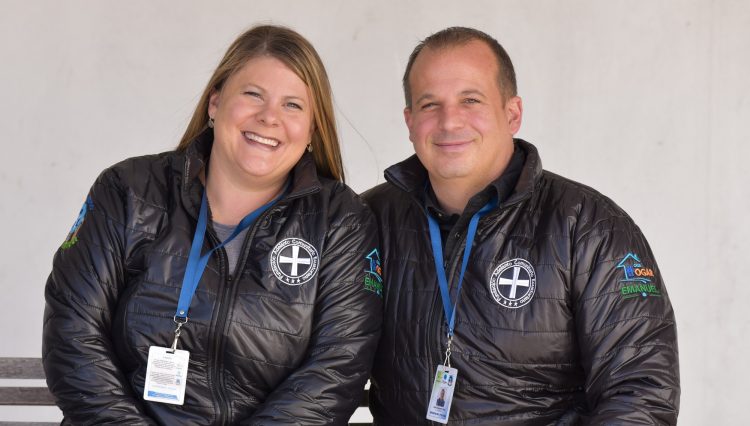 This is chapter is all about Short-Term Mission (STM) teams, mission teams sent from the U.S. and other developed countries to go and help in developing countries. I have to say it is good I (Joel) read this chapter a second time. After reading it the first time, I was about to throw the book in the trash. Up to this point, I have very much appreciated the opinions and ideas presented in the book and, even if I haven’t agreed with every detail exactly, I have felt that the book was offering a very good critique of international community development. After reading this chapter the first time, I felt like they had taken things a step too far in that it seemed to me that they were saying that there is pretty much nothing good that comes out of mission teams and that we should pretty much abort such ministries, though they never said it like that directly of course. Now, having this idea as to what the book was presenting was very difficult for me. And I have to be honest here and share a little bit of who Kim and I are to understand where we are coming from. Kim and I are both products of Short-Term Missions. We are both here as missionaries because we both had been involved in STM teams in the past. In addition to this, I have led 5 different STM teams in the past. Currently, though neither of us are directly ministering through STM teams, we help with them quite a bit. We know how much the National Church and the individual churches benefit from and appreciate very much the ministry of the teams as well as the relationships they have formed with individual churches in the States. So, this is all of our “baggage” that we bring to the table when reading this chapter.
This is chapter is all about Short-Term Mission (STM) teams, mission teams sent from the U.S. and other developed countries to go and help in developing countries. I have to say it is good I (Joel) read this chapter a second time. After reading it the first time, I was about to throw the book in the trash. Up to this point, I have very much appreciated the opinions and ideas presented in the book and, even if I haven’t agreed with every detail exactly, I have felt that the book was offering a very good critique of international community development. After reading this chapter the first time, I felt like they had taken things a step too far in that it seemed to me that they were saying that there is pretty much nothing good that comes out of mission teams and that we should pretty much abort such ministries, though they never said it like that directly of course. Now, having this idea as to what the book was presenting was very difficult for me. And I have to be honest here and share a little bit of who Kim and I are to understand where we are coming from. Kim and I are both products of Short-Term Missions. We are both here as missionaries because we both had been involved in STM teams in the past. In addition to this, I have led 5 different STM teams in the past. Currently, though neither of us are directly ministering through STM teams, we help with them quite a bit. We know how much the National Church and the individual churches benefit from and appreciate very much the ministry of the teams as well as the relationships they have formed with individual churches in the States. So, this is all of our “baggage” that we bring to the table when reading this chapter.
But like I said in starting out, it’s good I read the chapter a second time. The second time in reading the chapter I was able to move past my emotions of anger and frustration and read the chapter for what it was: a strong critique of Short-Term Missions. This, in the end, is a good thing. We always need to be analyzing and critiquing the things we do and the ministries we are part of to make sure that what we are doing is good. I do still feel that I don’t agree with the great the lack of benefits that come out of Short-Term Missions as I have benefited greatly personally, I have known many people in churches in the States who have benefited greatly and I have met many folks here in Ecuador who have all benefited greatly as well as the relationships that I have formed with our partner churches in my previous trips that testify to how much they have benefited.
With all of that said, I would like to point out some of the strengths of the chapter in its critique of Short-Term Missions.
I agree with the idea that one of the main difficulties that comes into play in STM teams is the cultural differences. One of the biggest differences between the two cultures is the concept of time. Those of us from the States often feel that time is available resource that we are always losing and need take advantage of every second that we have. Thus, sayings like “get the most out of every minute” and “time is money” are sayings that describe our cultural concept of time very well. The cultures that teams from the U.S. visit often have a different concept of time. They see it as a resource that there is always more of. We can always find more time to do that but we won’t always have this time to form and deepen relationships. Relationships and time together is the most important as opposed to the task that needs to be completed. There is also a large difference between the two cultures as how they view themselves. In the U.S. we are very individualistic and always put importance on the individual as opposed to other cultures which places so much emphasis on the well being of the community.
The other big thing that I would like to share is that we often have the idea that when we go out from the States we are going to save the world and help the poor and hurting people. There is a certain level of superiority that comes with that. I think it’s better that teams go with the idea that they are going to learn and partner in ministry. I can tell you because I live here in Ecuador: God is here! He is alive and at work in Ecuador. You don’t have to bring Jesus here because he is already here. I see His Kingdom growing and alive in the ministries of the National Church and local churches. The book gave a great explanation of what kind of mentality and attitude we need to have with our STM teams.
There is a lot more that can be unpacked from this chapter that is very helpful in critiquing how we should go about doing STM teams but I will leave that up to each of you to discover in your own reading.




 The Santiago Partnership
The Santiago Partnership